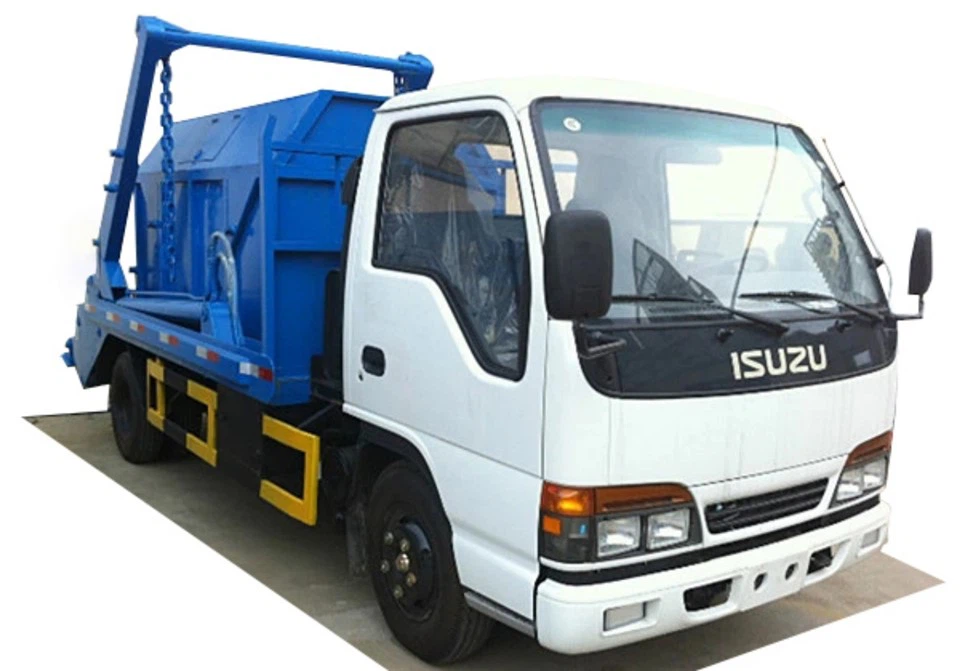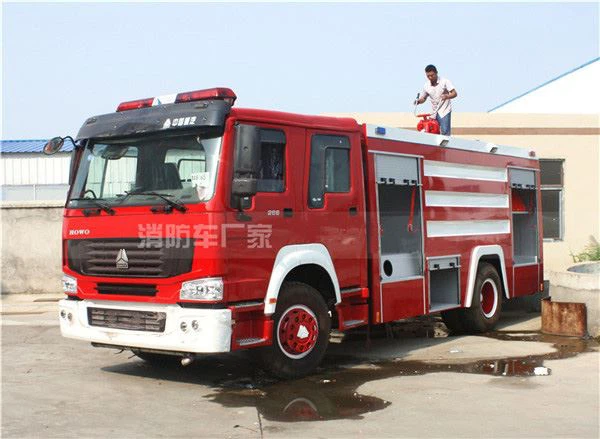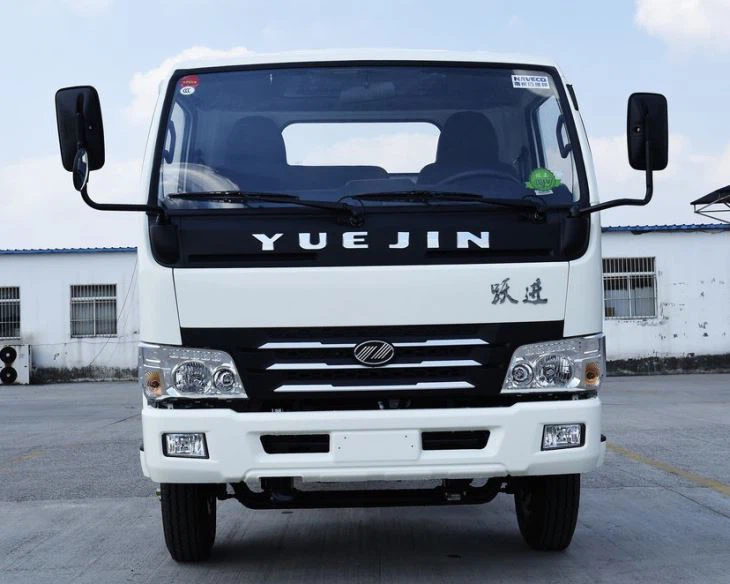Ultimate Guide to Diesel Small Trucks: Performance, Benefits, and Buying Tips

Introduction
When it comes to versatility, fuel efficiency, and power, diesel small trucks stand out as one of the best choices for both personal and commercial use. From hauling equipment to being your daily driver, these trucks combine the ruggedness of a full-size truck with the maneuverability and ease of handling associated with smaller vehicles. In this comprehensive guide, we will explore everything you need to know about diesel small trucks, including their advantages, popular models, maintenance tips, and buying advice.
Understanding Diesel Small Trucks
What is a Diesel Small Truck?
A diesel small truck is a vehicle that typically falls within the light-duty truck category, powered by a diesel engine. These trucks usually offer a payload capacity that makes them suitable for various tasks, from transporting goods to towing trailers.
Advantages of Choosing Diesel Engines
- Fuel Efficiency: Diesel engines are known to be more fuel-efficient than their gasoline counterparts, providing better mileage over long distances.
- Towing Capacity: Diesel engines generally produce more torque, making them ideal for towing heavy loads.
- Longevity: Diesel engines often have a longer lifespan when maintained properly, making them a wise investment for long-term use.
- Resale Value: Diesel small trucks tend to retain their value better than gasoline trucks, which is a significant factor for resale considerations.
Popular Diesel Small Truck Models
1. Ford Ranger
The Ford Ranger has gained a reputation as a robust diesel small truck. With a powerful 2.0-liter EcoBlue diesel engine, the Ranger provides excellent towing capacity, capable of handling trailers up to 7,500 pounds.
2. Chevrolet Colorado
Offering a balance of performance and comfort, the Chevrolet Colorado is available with a 2.8-liter Duramax turbo-diesel engine. This truck is well-suited for off-road adventures while still being a practical daily driver.
3. GMC Canyon
Similar to the Colorado, the GMC Canyon brings luxury and performance together in a small truck package. Its diesel engine options ensure that it can handle demanding tasks while providing a smooth ride.
4. RAM 1500
Though classified as a half-ton truck, the RAM 1500 has a diesel variant that offers impressive capabilities and comfort, making it a favorite among diesel enthusiasts.
Performance Metrics of Diesel Small Trucks
Fuel Economy Comparisons
| Model | Engine | Fuel Economy (mpg) | Towing Capacity (lbs) |
|---|---|---|---|
| Ford Ranger | 2.0L EcoBlue | 22 City / 29 Highway | 7,500 |
| Chevrolet Colorado | 2.8L Duramax | 20 City / 30 Highway | 7,700 |
| GMC Canyon | 2.8L Duramax | 20 City / 30 Highway | 7,700 |
| RAM 1500 | 3.0L EcoDiesel | 22 City / 32 Highway | 12,560 |
Buying Tips for Diesel Small Trucks

Evaluate Your Needs
Before diving into the market, assess what you will primarily use your truck for. Whether it’s for commuting, towing, or off-road adventures, this will influence your choice.
Consider the Price and Budget
Pricing can vary significantly between models and trim levels. It’s essential to set a budget that allows for maintenance and fuel costs in addition to the initial purchase price.
Test Drive Multiple Options

Always test drive multiple models to get a feel for their performance, comfort, and handling. Pay attention to the engine noise, and driving dynamics, and if possible, simulate a towing scenario to assess power delivery.
Check for Warranty and Support
Diesel engines require regular maintenance, so a solid warranty and robust customer support can save you money and hassle over time.
Maintenance Tips for Diesel Small Trucks
Regular Oil Changes
Diesel engines often run hotter than gasoline engines, making regular oil changes critical. Follow the manufacturer’s recommendation for oil change intervals.
Use High-Quality Diesel Fuel
Using high-quality, low-sulfur diesel fuel can improve engine performance and longevity. Always check for the fuel’s cleanness and quality before refueling.
Monitor Temperature and Pressure
Engines typically have sensors that monitor temperature and pressure; staying alert to any unusual readings can prevent larger issues down the road.
Timing Belt and Spark Plugs
While diesel engines do not have spark plugs, timing belts still need to be replaced as part of regular maintenance. Refer to the owner’s manual for intervals.
Common Diesel Small Truck Modifications
Performance Upgrades
Many owners consider performance upgrades such as cold air intakes, bigger injectors, or remapped ECUs to enhance efficiency and power output.
Towing Enhancements
If hauling heavy loads is a priority, consider installing tow hitches, brake controllers, and sway bars for improved stability.
Diesel Small Trucks and the Environment
Emissions Standards
Diesel engines are often criticized for higher emissions. However, many manufacturers are now producing trucks that comply with stringent emissions standards to reduce environmental impact.
Alternative Options
For those concerned about emissions, it’s worth considering newer diesel models that incorporate technologies such as DEF (Diesel Exhaust Fluid) to significantly reduce pollutants.
FAQ Section
1. Are diesel small trucks more efficient than gasoline trucks?
Generally, yes. Diesel engines provide better fuel economy than gasoline engines, especially for long-distance driving and towing scenarios.
2. What is the lifespan of a diesel small truck?
With proper maintenance, a diesel small truck can last between 200,000 to 300,000 miles or more, making them a long-term investment.
3. Can I use biodiesel in my diesel small truck?
Many modern diesel trucks can use biodiesel, but it’s essential to check the owner’s manual for compatibility and warranties.
4. How often should I maintain my diesel small truck?
Routine maintenance schedules depend on the model, but it’s generally advisable to perform oil changes every 5,000 to 10,000 miles and regular check-ups as recommended by the manufacturer.
5. What is the best way to improve performance in a diesel small truck?

Some effective options include performance tuning, installing a colder intake system, and improving exhaust systems for better airflow.
6. Is a diesel small truck suitable for everyday use?
Absolutely! Diesel small trucks are designed for versatility, providing a great balance of power, efficiency, and comfort for daily driving.
